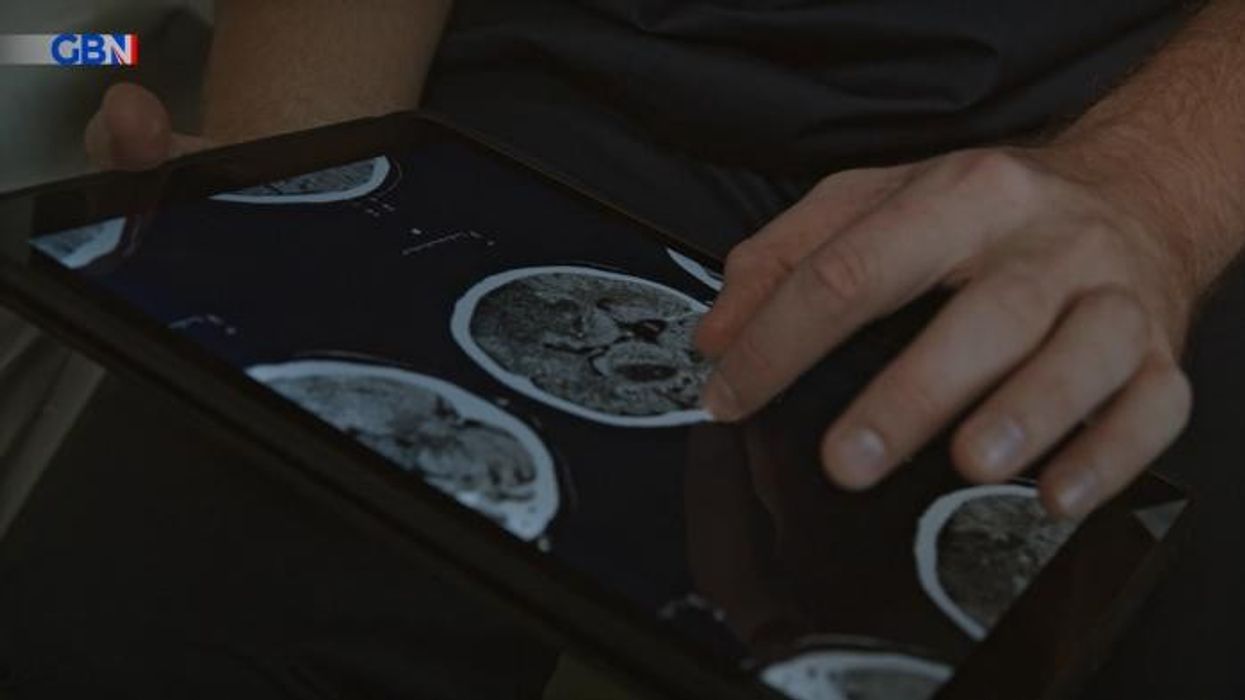Health coach shares 'weird' dementia sign that struck his 57-year-old mum - 'Didn't know what was going on'

Five lifestyle habits that make the brain 'resilient' against dementia
|GBN

Spotting dementia symptoms early can drastically improve patients' quality of life
Don't Miss
Most Read
The number of people living with early-onset dementia has increased by almost 70 per cent in the past decade, yet many still don’t expect the disease to strike until later in life.
Typically marked by memory deterioration, the brain disease can cause a litany of nonspecific symptoms.
Nutrition coach Tyler Bradley has documented some of the unusual signs his mother experienced following her diagnosis with frontotemporal dementia (FTD), which affects parts of the brain responsible for language and behaviour.
When he invited the 57-year-old onto his channel to discuss her main frustrations with the disease, she identified communication struggles as one of the worst.

Tyler has shared several clips documenting his mother's journey with the disease
|TIKTOK
But while language troubles were always prominent in his mother's condition, Tyler also noticed movement disorders, specifically twitches.
“Here’s one of the weird things dementia does to my mum," he shared. “She has frontotemporal dementia, which is one of the rarer forms of dementia.
“She also has some brain deterioration. But one of the things that is happening is like a tic.
“Before, it was simple, like her hands constantly together, needing to have something to fidget with - OCD-type symptoms she’d never had before, like having very specific things with her at all times.
“More recently, she’s been twitching,” Tyler continued. “At first, we didn’t really know what was going on, but we realised it was from her brain, and we assume it’s due to the synapses in her brain firing incorrectly - or not firing at all.”
Involuntary movements of this kind generally reflect the degeneration of nerve cells in the front and temporal lobes, involved in motor control and impulse regulation.
This may manifest as muscle twitches in certain individuals, while others may experience stiffness, slowed movements, and difficulty swallowing.
The tics can appear early or late in the progression of the disease, depending on the specific type of FTD and the individual.
LATEST DEVELOPMENTS:

Symptoms of fronto-temporal dementia can vary widely from person to person
|GETTY
Alzheimer’s Research UK states that around one in every eight people with behavioural variant FTD also develops movement problems of motor neurone disease.
“This can include stiff or twitching muscles, muscle weakness, and difficulty swallowing,” notes the health body. “The early symptoms of FTD can vary widely from person to person.
“This is because they depend on which area of the brain is affected first, and which type of FTD someone has.”










